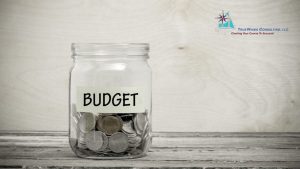Running a successful business requires more than passion and hard work—it requires a clear financial roadmap. That roadmap is your budget. Whether you’re launching a new venture or scaling an existing one, budgeting is one of the most essential tools for guiding your decisions, shaping your goals, and ensuring profitability.
What Is a Budget?
At its core, a budget is an estimate—a forward-looking picture of your business’s financial activity over a twelve-month period. It outlines expected revenue (money in), expenses (money out), and profit (money left over). More than just a spreadsheet, a budget forecasts sales and the operational costs required to support those sales. It helps you understand what it will truly take to run—and grow—your business.
Why Every Business Needs a Budget
Budgeting is more than an accounting exercise; it’s a strategic necessity. Without one, you’re operating reactively, constantly adjusting to surprises instead of confidently steering the business. A solid budget keeps you proactive, informed, and prepared.
Here are 10 key reasons why smart businesses rely on budgets:
- To set goals and expectations
A budget defines what you’re aiming for—sales goals, cost targets, and profit expectations.
- To measure actual performance
Comparing real results to budgeted figures shows where you’re succeeding and where adjustments are needed.
- To anticipate and plan for cash needs
Cash flow is the lifeblood of any business. A budget helps forecast when cash will be tight or plentiful.
- To trigger decisions about equipment, vehicles, or staffing
Instead of guessing, use your budget to know when you can responsibly invest.
- To establish trends and forecasting insights
Spot patterns early—seasonal dips, steady growth, or rising costs—so you can plan ahead.
- To support loan or credit applications
Lenders want to see projections. A strong budget increases your credibility.
- To make better use of P&L data
Comparing actual results to your budget helps ensure profitability month after month.
- To project net sales needed for growth
Understand what new sales are required after accounting for current business and any lost work.
- To set performance targets for managers
Clear goals allow you to reward exceptional performance and drive accountability.
- Because you agreed to…
Whether it’s a strategic plan, investor requirement, or personal commitment—budgeting keeps you aligned with your promises.
How to Use Your Budget Effectively
A well-constructed budget will show you:
- The revenue required to support operations
- Cash needed for labor, materials, and overhead
- When equipment purchases or investments make sense
- The level of profitability your business can realistically achieve
It becomes a living document—one you revisit, refine, and rely on throughout the year.
What to Do When Your Budget Doesn’t Balance
It’s common for your first draft to show expenses higher than revenue. Don’t panic—revisit the numbers:
- Review labor costs, your largest expense, to ensure they reflect actual past performance.
- Look for expenses to reduce or eliminate.
- Increase revenue projections by offering more services without increasing staff, if possible.
- Assess whether your profit target is realistic.
- Verify industry-standard percentage ranges to ensure your budget aligns with common benchmarks.
Fine-tuning your budget is part of the process—and each revision brings more clarity.
The Equation That Drives Every Business
At the end of the day, budgeting reinforces a simple formula:
SALES REVENUE – TOTAL OPERATING COST = PROFIT
Profit leads to success…
…Success leads to sustainability.
Conclusion
Budgeting isn’t just about numbers. It’s about vision, discipline, and strategy. A well-built budget empowers you to run your business intentionally, anticipate challenges, and seize opportunities.
When you understand where your money is going and what it takes to achieve profit…
…You’re not just surviving—you’re building a sustainable path to long-term success.
Be well, do good work, and keep in touch.
Fred



